-
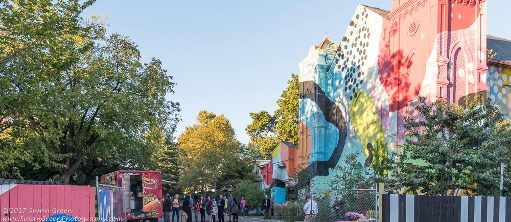 © 2017 Susan Green www.SusanGreenPhotography.com
© 2017 Susan Green www.SusanGreenPhotography.com
-
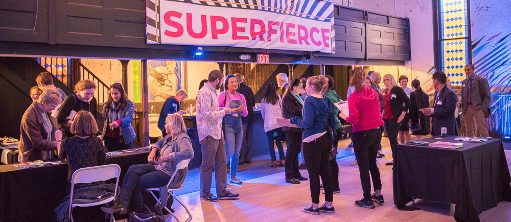 © 2017 Susan Green www.SusanGreenPhotography.com
© 2017 Susan Green www.SusanGreenPhotography.com
-
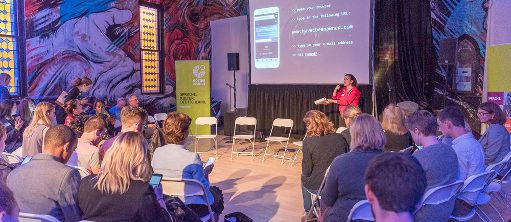 © 2017 Susan Green www.SusanGreenPhotography.com
© 2017 Susan Green www.SusanGreenPhotography.com
-
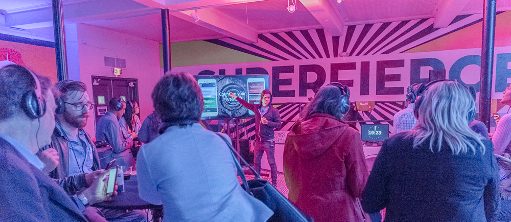 © 2017 Susan Green www.SusanGreenPhotography.com
© 2017 Susan Green www.SusanGreenPhotography.com
-
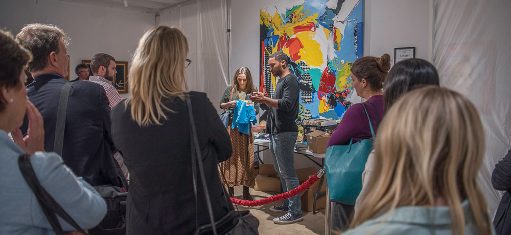 © 2017 Susan Green www.SusanGreenPhotography.com
© 2017 Susan Green www.SusanGreenPhotography.com
-
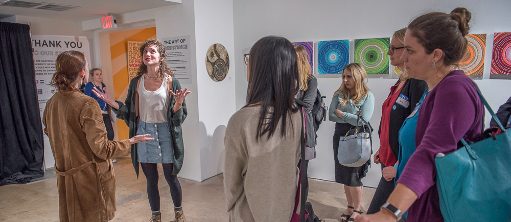 © 2017 Susan Green www.SusanGreenPhotography.com
© 2017 Susan Green www.SusanGreenPhotography.com
-
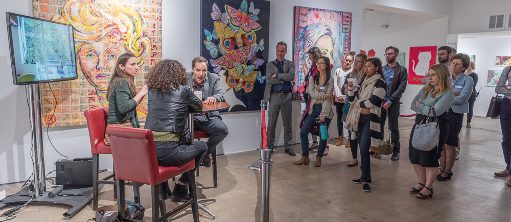 © 2017 Susan Green www.SusanGreenPhotography.com
© 2017 Susan Green www.SusanGreenPhotography.com
-
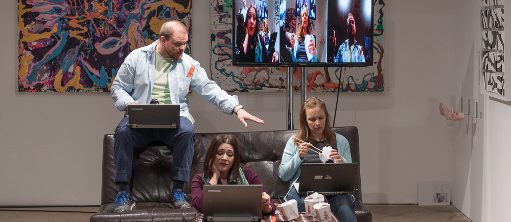 © 2017 Susan Green www.SusanGreenPhotography.com
© 2017 Susan Green www.SusanGreenPhotography.com
Goals: Digital Eye @BlindWhino was an interactive, inter-genre performance event born out of a broader project, P3M5. Digital Eye @BlindWhino was developed to fulfill a goal of some of the original P3M5 partners: to create a performance event which celebrates the brilliant micro-plays commissioned through P3M5. Also, important to the European partners was developing a template for public conversation around a complicated, timely and urgent question about how the swiftly changing technology we use is challenging our fundamental understanding of our privacy rights and practices. Our goals were to collaborate with theaters, embassy cultural officers and thought leaders in the DC metro area to create a forum for informed discussion about contemporary privacy challenges created by our use of digital media and to make an event appealing to and across generations and backgrounds.
Genesis: Beginning in January 2016, P3M5 is a multi-faceted, global project organized by the Goethe-Institut Washington, with several European and US partners, to further conversation about the changing nature of privacy rights around the world. Wilfried Eckstein appointed Gillian Drake as the US curator, and together they developed a new play initiative which sought out theaters in Europe and the US to commission resident playwrights to create micro-plays about how the profound changes in digital privacy affected them as artists. These plays were then videotaped by the resident theaters. Performances of these 14 plays (or viewing of their performance videos) occurred all over the world and in the US. However, as the originators of P3M5 collaboration, we felt it important to create an event here in Washington DC.
Impact: On October 16 and 17, Digital Eye @BlindWhino had four performances over two nights. Each performance sold out and accommodated 15 overflow audience members. Each ran flawlessly, and the audience flowed from each theater experience to the next as planned. The reviews from the theater blogs were uniformly excellent.
Audience Response: We surveyed the ticketed audience members. So far we have received about 40% response rate, which is high for a post-performance audience survey. ** Individual comments are referenced at the end of the report. The following results were analyzed:
Overall rating for the event: 95% responses were excellent, very good or good.
Good model for educating public about subject: 93% agreed
Desire to see more theater events like this one: 100%
How unique was this event to WDC: 95% agreed it was extremely unique or very unique
Value for the $20 ticket fee: 95% felt it was good to excellent value
Venue rating: 90% agreed that the venue was excellent to very good
How did they hear about the event: 0% friend/word-of-mouth, 18% embassy communication, 22% social media, and 11% theater communication
Template for future productions: The interactive, multi-genre model DE@BW was highly efficient in its theatrical demands, had an effective structure for entertaining a diverse audience and could be a good template for those who are considering the P3M5 plays for production. The parts are reproducible and adaptable, the production design and technology specifications are complete (and can be pared down), and all the scripts are available without royalty through August 2018. For instance, each future producer may determine the scale of the project by adjusting to the demands of their venue and selecting the plays that they wish to perform. The hacker game show script can easily be adapted to reflect current research. The pre-show script for tour guides can be used as is or adapted when other privacy tests are identified. Within the DE@BW structure, there is a lot of room for flexibility and creative choice. The performance can be accomplished with one director or in a consortium, with only a few actors or as many as 13. It is our hope that this successful event will inspire more productions across the globe about this important issue.
BACKGROUND
Form and Style: The creative team became convinced that an interactive event for the audience was the right approach – the audience would experience a privacy challenge, become immersed in the artistic responses (through very personal plays), and engage in an informed conversation with leaders in the field. Borrowing from experiences at theater festivals in Germany, the theater performance was designed to embrace different genres, forms and styles, including integrating film, theater, an interactive audience roundtable conversation, and mixing it with a social, fun atmosphere of cocktails, food and games. We searched for a venue to accommodate this artistic interaction among performers, audience and experts and found The Blind Whino, a converted Baptist church in Southwest DC in the new ‘Wharf neighborhood,’ with 4 unique performing spaces.
Format and Structure
1. The 75-person audience started all together in the large church hall space with a scripted pre-show in which ‘Hacker Tour Guides’ met each audience member, secured their telephone numbers, texted them a Privacy Challenge quiz to test their privacy views, and our first privacy “hygiene” test. After surrendering their telephone number, the audience also received funny, snarky memes throughout the evening relating to what they were doing or seeing. The performance itself started with a 7-minute film of a play created in the Czech Republic. The audience then split into three groups of 25, led by a “tour guide,” and set off to one of three different rooms. Every 20 minutes the groups finished one performance and moved to the next room until all three performance spaces finished and all groups came together in the large room for a final town hall discussion with some prominent think tank leaders in the privacy space.
2. The Art Gallery space, which had a vivid painting exhibition on the walls, inspired us to perform four of the plays in a pop-up style. The audience entered the gallery space seemingly full of people looking at the art on the walls, and then a pair of actors broke out into their play, and the audience moved to accommodate it. The next play seamlessly began in a similar way in another part of the gallery.
3. We used the black box stage space in a more traditional theater concept for our two, dark interrogation-themed plays. The audience sat on stools so they could pivot from one play to the other.
4. The fourth space, ‘The Lounge,’ offered a large open room with two bars, a small stage (for a band or DJ ostensibly), graffiti-painted walls and a low ceiling. This space hosted our Hacker Game Show. We created the game show environment with 5 tall cocktail tables outfitted with buzzers and headphones, a screen for the game show projections and a space for our host to generate audience participatory experiments. The game show tested the audience’s knowledge of current privacy practices and products and taught them some fun and frightening things about leading companies in the technology industry.
Partnerships: The original P3M5 comprised of 14 theaters representing nine countries (including the US). For the Washington, DC performance event, six European embassies, four theaters, and one university offered money and in-kind support. These European partners included the Goethe-Institut Washington, British Council, Spain Art & Culture, Austrian Cultural Forum, the Embassy of Sweden, the Czech Republic. The Studio Theatre, Baltimore Center Stage, the Shakespeare Theatre Company and Forum Theatre were the participating theaters, along with Georgetown University: Laboratory for Global Performance & Politics hosting the Town Hall segment. Each theater contributed a staff director, an assistant director, and cast from its circle of artistic associates and provided costumes, set pieces, props, and rehearsal time and space. The rest of the budget and production requirements came from the European Embassy community, including a grant from EUNIC. The Blind Whino partnered with us to reduce the rent for the space. We acquired the experts for the town hall through contacts among the Goethe-Institut, the Laboratory for Global Politics and Theater at Georgetown University and through Gillian Drake, the co-producer and originator of the event.
Production Team: Gillian Drake, the only curator from the P3M5 original group, led the artistic and production staff: a designer/director of technology, a production coordinator, a stage manager, audience experience designer, a game show writer, three technical crew persons (who doubled as the load-in/out crew). We hired individuals for the video and Power Point content. The partners shared marketing responsibilities, with the Goethe-Institut taking the lead, and ran the small box office. We met, but did not exceed, our overall budget of $20,000.
** Selection of individual response by audience members:
“I loved how interactive and varied the event was. Extremely thought provoking, esp., the 'game' portion that touched on the iphone settings, etc.”
“I loved the interconnection”
“I thought the panelists were excellent”
“Used a variety of methods and scenarios. Excellent actors, educated while entertaining; textures, dialogue, interactions with audience all very effective.”
“I liked that it was informal and encouraged people to talk to each other before and during the show..and that it was relevant and political.”
“I loved this event! I particularly enjoyed watching the pieces and while I wouldn’t necessarily agree completely with either party in the dialogue that was being performed, it instantly sparked almost a gauge over their heads where I was trying to place myself and my beliefs on the scale between the performers. Incredibly unique and thought provoking. Well done!”
“It was unpredictable and captivating and the acting was excellent.”
“Variety of viewpoints presented in plays, collaboration between multiple theatre companies and across media through the use of the art gallery space.”
“I liked the whole event - it was a form of theatre that is pretty new to me and I liked moving through the different short forms. I liked the game show format as well as the burka monologue and the monitored interview/last secret. I enjoyed the panel discussion, but thought it would have been better to allow a little more time or more planning on this part. My other recommendation is to streamline buying tickets and check-in. With all the info I had to give up to get the tickets I thought I would just scan to check in but it was a manual list - overall a great theatre experience. I was really glad I heard about it and was able to attend.”
“How it became personalized beyond just the audience being concerned what the websites would share about them personally, but the person standing next to you suddenly being part of the show and your personal proximity becoming part of the stage.
“Accessible, innovative, and done with passion. The varied nature of the performances meant you never had a clear idea of what was coming next - which I consider a good thing! The Burqa monologue was tremendously powerful - props to both the writer (who really hit home) and to the actress (who gave a tremendous delivery).”
“I loved being given a team, and the small audience size.”
“Yes I thought it was a good mix of themes. In addition to the religious and cultural aspect, it would be great to see the reality of someone living with limited income/in poverty in the U.S. I imagine a lot of the people who attend are policy wonks, and something like a reenactment of a person who doesn't have unlimited access, a kid who has to study for school, etc. would maybe have a more significant impact than facts and statistics about privacy and access for this income range.”